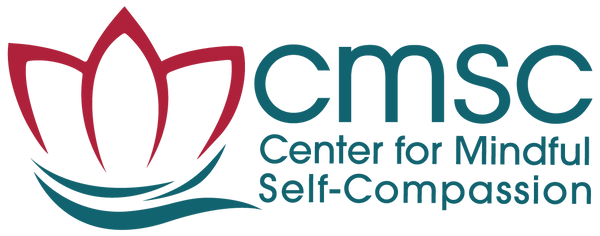Use of Materials
Guidelines for Program Development Involving MSC (Mindful Self-Compassion)
1. Use of MSC Name and Intellectual Property (IP)
A. Terminology and Attribution
- Terms such as "Inspired by," "Based on," or "Adapted from" are acceptable with proper credit to MSC.
- These approaches do not require formal CMSC review.
- Programs using these terms may not include "MSC" in the program title.
B. Use of "MSC" in Program Titles
- Programs that include "MSC" in the title must undergo formal application and review.
- These programs must meet standards for fidelity to the MSC model and demonstrate efficacy.
- Approval is granted through an official CMSC "STAMP."
2. CMSC STAMP Approval Process
A. Meaning of the STAMP
- Indicates the program has been formally reviewed and approved.
- Approved programs may state: "Reviewed and Approved by CMSC."
- Review must include:
- CMSC Education Director
- At least one Founder (Kristin Neff or Chris Germer)
B. Applicable Scenarios
- Use of MSC in a new setting or audience (application).
- Specialized adaptations, such as programs for teens.
3. Review Criteria and Efficacy Requirements
A. Application Submission
- Must include a complete curriculum.
- Will be assessed for alignment with MSC principles and content integrity.
B. Research and Data Requirements
- Programs must demonstrate efficacy through:
- A published study, or
- A pilot study with a waitlist or control group
- Efficacy is determined by a committee that includes the Education Director and a Founder.
4. Programs Without Research
- Programs that lack efficacy data can still be delivered if they do not use "MSC" in the title.
- These may include:
- Standalone workshops
- Creative expressions (e.g., Self-Compassion and Art)
- Books and articles
- Written work based on the MSC program must follow intellectual property protocols, including coordination with Guilford Press.
5. Definitions: Application vs. Adaptation
A. Application
- Incorporates MSC principles in a new or distinct setting.
- Eligible for CMSC STAMP if reviewed and approved.
- Requires connection to the core MSC curriculum.
B. Adaptation
- Substantial modifications of MSC content.
- Not eligible to use "MSC" in the program title.
- May be eligible for STAMP as an approved adaptation.
6. Activities Allowed Without CMSC Approval
- Programs or offerings that are clearly "inspired by" MSC.
- Workshops that do not use the MSC name or claim fidelity.
- Informal community initiatives and creative work.
- All uses must maintain respect for the MSC brand and IP.
7. Additional Notes
- The use of "MSC" is the central legal and relational trigger for review.
- This document is intended to guide most development efforts. There may be exceptions.
- Developers are encouraged to consult CMSC when in doubt.
- Trained and certified teachers are expected to exercise discretion and alignment with CMSC values.
